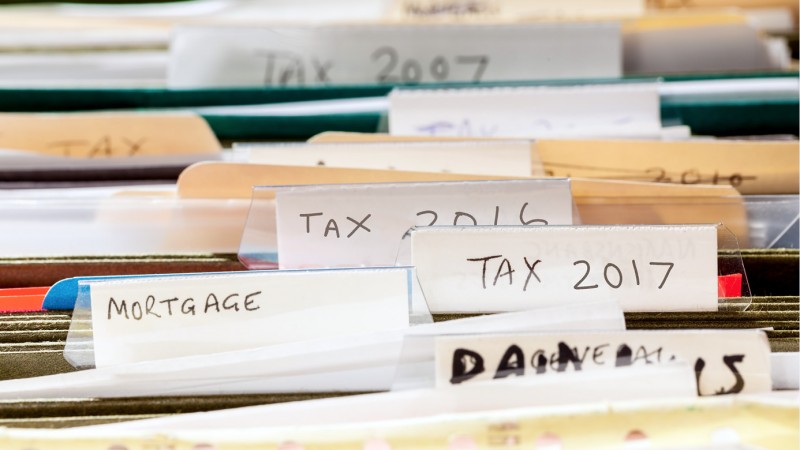How Long Should You Keep Your Tax Records?
- Details
- Written by Remar Sutton
- Category: Articles

Once you file your income tax, you will still need to spend some time finalizing your records before you are officially done with your taxes for the year. This report looks at the records you need to keep and how long you should keep them.
If you are in any doubt about keeping a financial document, be cautious and keep it. Better to save it now in case you need it later.
While the IRS specifies the length of time that you need to keep your tax records, it's important to note that there are some additional records that you may need to keep longer that are not specified. Additionally, the IRS does not specify how you need to keep your records. Choose the method that works best for you whether it's digital, printed, or a combination of the two. No matter what method you choose, you will want to make sure that you backup any digital records.
Tax Return
Once you've filed your tax return, you will want to keep a copy, including attachments for your records. You should also keep all of the worksheets and forms that you used to complete your return but aren't submitted. Supporting documentation for income, deductions and credits such as W-2 and 1099 forms, bank statements, receipts, cancelled checks, or other proof of payment should be added to your file. You will want to keep these records for at least 3 years.
It's important to note that there are situations in which you need to keep records for longer than 3 years:
7 years if you claim a loss from worthless securities or a bad debt deduction.
6 years if you underreported your income and the amount that was not reported was more than 25% of the gross income shown on your return.
The later of 3 years or 2 years after tax was paid, if you file a claim a credit or refund after you filed your return.
Keep records indefinitely if you didn't file a tax return or if tax fraud was committed.
W-2 Forms
An employee is typically provided with 3 copies of a W-2 form. Copy B is filed with federal tax returns, Copy 2 with state and local tax returns and Copy C is your copy. The IRS recommends that you keep Copy C until you begin receiving social security benefits. If there are any questions about your benefits, these copies can show your work record and earnings in each year.
Home
It is important that you keep records related to the purchase, improvement, and sale of your home. Having these records will help you determine if you have a gain or loss when the home is sold. They can also be used to figure depreciation if you use part of your home for rental or business purposes. The records should show the purchase prices, settlement or closing costs, and the cost of any improvements.
Investment Documents
You need to keep records of investments such as stocks, bonds, and mutual funds. These records should show the purchase price, sales price, and commissions. They may also show reinvested dividends, stock splits and dividends, load charges and original issue discounts. This information will be used to determine if you have a gain or loss when the investment is sold.
The IRS provides more details about record keeping in Publication 17 Your Federal Income Tax.
If you find yourself questioning whether or not you should keep a financial document, it's best to be cautious and keep it. Our advice is that it's better to save it now in case you need it later.












